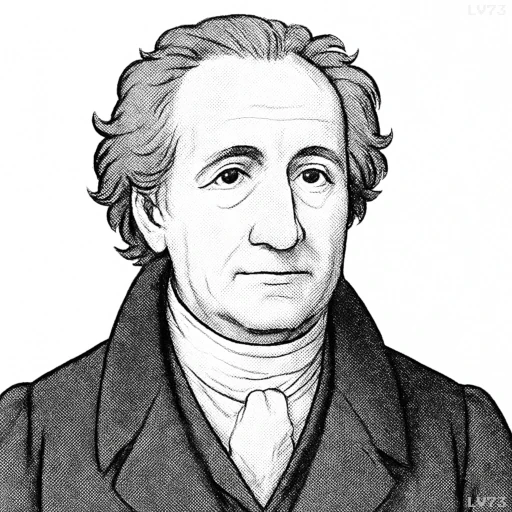“A man’s manners are a mirror in which he shows his portrait.”

- August 28, 1749 – March 22, 1832
- German
- Poet, playwright, novelist, philosopher, politician
table of contents
Quote
“A man’s manners are a mirror in which he shows his portrait.”
Explanation
Goethe suggests that a person’s manners—the way they behave, interact, and treat others—serve as a reflection of their character. Just as a portrait reveals the features of a person’s appearance, a person’s manners reveal the essence of who they are. Respect, kindness, empathy, and honesty (or the lack thereof) are all reflected in how we present ourselves to others, and these traits speak volumes about our inner qualities.
Historically, this idea aligns with the belief in the importance of virtue and personal integrity, which were emphasized during Goethe’s time. Manners were seen not just as social niceties, but as indicators of a person’s moral character and upbringing. Goethe himself, deeply reflective about human nature, understood that our outward actions and interactions are often the truest expression of our inner selves.
In modern contexts, this idea is still highly relevant. How we interact with others—whether in professional settings, personal relationships, or social environments—reveals much about our values and personality. For example, a person who is respectful and courteous in difficult situations demonstrates patience and self-control, while someone who is rude or dismissive may reveal insecurity or a lack of empathy.
Goethe’s words remind us that manners are not just about social conventions or politeness, but about expressing our character and the values we hold dear. They serve as a mirror, offering others a glimpse of our true selves.
Would you like to share your impressions or related stories about this quote in the comments section?


